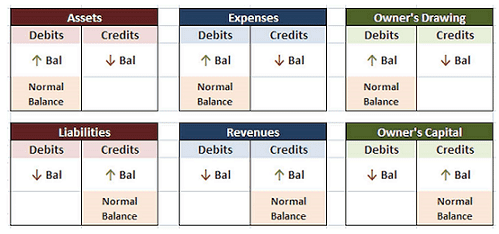
Loans increase your cash balance, but you shouldn’t consider them revenue or profits since you have to repay them. You’ll overstate your earnings if you treat a loan as income on your books. Reconciling bank statements on a regular, scheduled basis helps validate your records.
What are the common signs that I might need to switch to a different bookkeeping software?
While P&L statements focus on revenue and expenses, balance sheets focus on assets and liabilities. Assets include anything of cash value you own through your practice. Balance sheets offer a complete view of your practice’s financial position at any point in time. You can generate profit and loss statements monthly or quarterly to help monitor your practice’s financial health and plan for the future. Whether your goal is to remain a solo practitioner or to expand into owning a group practice, having a clear financial vision is vital. Bookkeeping for Veterinarians Proper accounting means you’ll have detailed financial reports to help guide your decisions.
Transform how you manage your practice finances

If you have no time for anything else between seeing clients and managing the books, then it’s probably time for professional help. Even though it may seem in the beginning like there isn’t enough money to divide, it’s best to do so right from the start. Dividing personal and business finances also helps you be realistic about what you can spend in either facet of your life. Beyond these, expense management empowers you to make educated decisions by being aware of where your practice’s money is going and assessing whether these are the best expenditures in the future. To have a good understanding of the financial health of your business, you’ll need to keep some financial documents up to date.
- For example, many therapists probably don’t realize that using online accounting software to maintain financial records and process patient payments is a vulnerability that could result in a security breach.
- While utilizing a do-it-yourself accounting solution may seem cost-effective initially, the potential for errors and overlooked tax deductions can lead to greater financial losses over time.
- Use this cheatsheet to maximize your deductions and save money on taxes for your therapy practice.
- Many practice owners find accounting either boring or confusing, but understanding your finances is key to making informed decisions about your practice.
- Not sure how to plan for a successful private practice that really makes you happy?
- The chart of accounts is a categorized list of how your practice earns and spends money.
An example chart of accounts for your therapy practice
- Partnering with a Certified Public Accountant (CPA) or a full-service bookkeeping firm, such as Gemini, can provide significant long-term benefits.
- Regularly reviewing financial reports helps you understand the financial health of your practice.
- However, it’s crucial to note that not all platforms, including the widely used QuickBooks Online, comply with Health Insurance Portability and Accountability Act (HIPAA) regulations.
- PMS and the like helps you track sessions, treatment plans, and any medication prescribed.
- When searching for a CPA for therapists near me, prioritize those with a deep understanding of healthcare regulations and a proven track record in handling therapy-specific financial challenges.
- Keeping your therapy practice’s finances in order might not be the most exciting part of your job, but it’s crucial for your success.
- Moreover, the practice’s client acquisition and retention strategies, as well as its operational efficiency, directly influence the bottom line.
Set aside a specific time each week to review your income and expenses, categorize transactions, and reconcile your accounts. This prevents the buildup of unrecorded transactions and ensures that your records are always up to date. In addition to expenses and operating costs, you also have to consider taxes and other financial matters. Ask the accounting services that you consider hiring if they can help with taxes, reporting and expenses, balance sheets, and other aspects of your private practice that need a trained, experienced expert. Regularly reviewing financial reports helps you understand the financial health of your practice. Looking at all three reports (not just your P&L!) is essential to getting a wholistic view of your practice’s financial health.
Role of a CPA in Managing Therapy Practice Finances
- Bookkeeping is not just about ticking boxes; it’s about gaining deep insights into your practice’s performance and making informed decisions about its future.
- It is crucial to understand self-employment taxes, including the 15.3% tax for Medicare and Social Security, and the importance of making quarterly tax payments if certain income thresholds are met.
- Rather than scrambling in April, it’s in your best interests to sort your books along the way.
- If you use any of this equipment for both personal and professional reasons, a CPA or tax advisor can tell you how much of the value of each you’re able to report for the purpose of tax deductions.
- One significant factor is the type of services offered; offering specialized services can often command higher rates, improving the profit margin.
Choosing the right progress note template for your practice can streamline your documentation, ensure you capture all the necessary information, and help you stay organized and compliant. In this article, we’ll look at some popular therapy note templates and provide examples to guide you in creating effective and efficient progress notes. Busy Bee Advisors steps into this space with a promise to make your life easier.


Be sure to keep your receipts in case of an audit, as you will need proof of purchases. Whether you do your own books or use Bench to manage it for you, here are four benefits of having an up-to-date bookkeeping process for your private practice. Learn how to build, read, and use financial statements for your business so you can make more informed decisions.

If invoices aren’t paid on time, running your business can become difficult, if not impossible. Your cash flow and having the necessary funds to pay your expenses is directly affected by patient payments, so having an organized bookkeeping system can streamline this bookkeeping for therapists process. Not only can you follow outstanding and paid invoices, you can also budget better by analyzing and predicting your regular expenses. Understanding the chart of accounts is essential for setting up a bookkeeping system for your private practice.
Therapists seeking to effectively manage finances and expand their trial balance practice can receive invaluable guidance from a small business CFO or coach. They offer professional advice, support, and even mentorship in navigating the complexities of business and financial management. Blueprint automates progress notes, drafts smart treatment plans, and surfaces actionable insights before, during and after every client session. One of the biggest challenges for self-employed therapists is paying taxes, particularly estimated taxes. To avoid a hefty tax bill at the end of the year, it’s crucial to save for taxes throughout the year.




